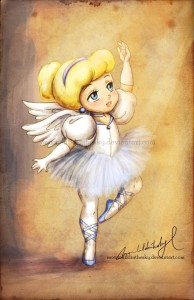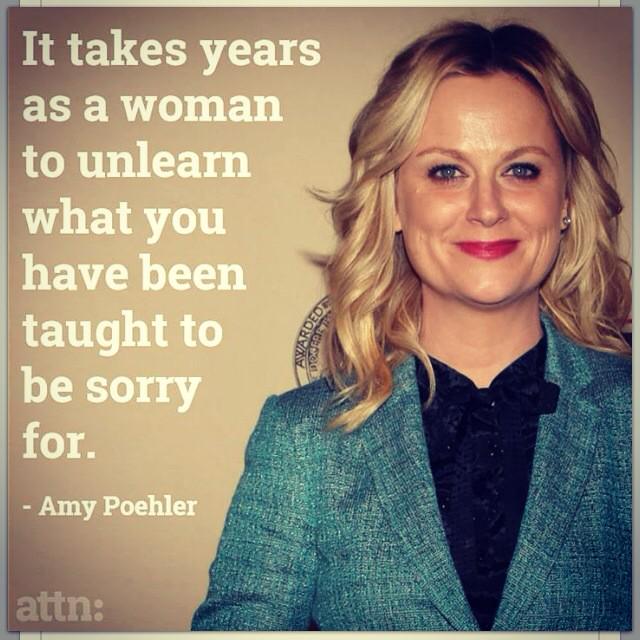
http://moonchildinthesky.deviantart.com/
I’ve tried to write a post explaining why I hate Disney’s Cinderella several times. I haven’t yet written it successfully, at least in my view. I’ve long had a hatred for this movie I couldn’t quite put into words (specifically the Disney animated version, I do love other adaptations), and I thought I’d take another whack at explaining my beef.
I think to properly explain it, I have to get a little personal.
When I was in first grade, the boy sitting next to me, with whom I was mildly friendly, misbehaved in a manner I can’t recall. It was some sort of special day where we were all getting a special drink to celebrate. Maybe it was St. Patty’s day and we got a green drink? I don’t remember. But we all got one drink and only one. Misbehaving-Boy got his drink taken away as punishment. So I gave him my drink. The boy proudly said to the teacher, “Mrs. Rohall, look, Leah gave me her drink!” and I beamed, expecting to be praised for my kindness. The teacher pursed her lips, clearly vexed, and quietly, almost disappointedly, told me I could get a drink from the water fountain if I wanted. I was confused, I expected her to be proud of me. I had done a kind, self-sacrificing thing. Wasn’t that the best thing I could do?
My teacher wasn’t happy because, well, the boy didn’t receive the punishment he had earned, but also, she was seeing a young girl learn what so many girls and boys subconsciously learn at a dangerously young age: that the best thing a woman can be is a martyr who takes care of everyone but herself. The boy deserved a punishment, but I took it for him, even though I had done nothing to bring it on, and I felt proud. At the same time, I still wanted that drink everyone else got. I was bullied and mocked regularly around that same time by other boys in my class, probably because I made myself an easy target. My mom taught me to stand up for myself. I did, the bullying stopped, and the eye-rolls started. I’ve been the loud and obnoxious screwball you all know and love ever since.
So where did snarky, sarcastic, social justice warrior Leah — the seven-year-old who had an actual temper tantrum when she learned that the movie Yentl was based in historical truth — learn this subservient ideal? Honestly, Cinderella. Other places, too, I’m sure, but Disney’s 1950 animated Cinderella and its 2015 live action remake remain one of the greatest offenders of movies that perpetuate our cultural dogma of the selfless, idyllic angel that every woman should aspire to be.
Cinderella never once complains or fights back. She certainly isn’t happy with her situation, and dreams of a better life without her abusers. The movie makes this clear. But she still accepts it without complaint, while staying poised and composed and beautiful at all times. She is the hero of the story whom we admire, look up to, and, consciously or subconsciously, we expect young girls to emulate. In the end, Cinderella receives her just reward, specifically because she cared for everyone except herself. She never complained, never showed any sort of weakness, or any form of meltdown that any normal human would certainly have in that situation. As a result, a singing sorceress, magical mice, and a pumpkin all worked together to fix her deserved end.
I processed that idea as a child, and I carried it with me. Whenever I played with figurines and created stories as a small child, my favorite figurine, the “main character” of my stories, would always be self sacrificial and caring to a fault. Sometimes her friends would have to intervene because she refused to even take food for herself. This was something I thought the heroines of my stories should do. They were what I knew I couldn’t be, yet somehow wished I could. So, despite being the brash, brassy, broad I turned into, I still learned this Lesson of Cinderella deeply, pervasively, and prematurely. When things like that happen, it’s not “just a movie.” It’s a truly subliminal lesson that shaped my developing brain, and I cannot be the only one or even one of few who took this lesson with them through life.

I threw away the self-sacrificing heroine from my stories the same day I threw away Cinderella from my heart. She had no place there if I was going to have a place in my own world.
Have you ever heard a man, or been that man, who wonders why women are so passive aggressive? Why can’t they just say what they mean? Why do they say they’re “fine” or that they’re not angry when they’re clearly upset? It’s because every single one of us has a voice inside our head telling us to simply “make nice.” Work through it on your own. Accept the bad thing that has happened and do not complain or cause a ruckus. Be the peacemaker. Make everyone else comfortable. But, of course, as human beings, that’s not easy or even healthy to do. So we snap in other ways. We hold onto our grievances because no one else worked with us to help “let it go.” Yeah, that’s probably one of the reasons that song resonates so well with all of us. It’s a correction to a destructive ideal that was imposed on us before we had the words to question it.
Women are taught very young and quite forcefully that we are caregivers, and it is not for us to be the hero of the story. It is for us to help the heroes of the story. Truthfully, I identify with the quirky best friend or sidekick of any movie more than I do with the hero. That’s what the world taught me my role was. When I tried to emulate those angelic heroines Disney and other media makers have been throwing at us for generations, I either failed or I felt invisible, because that’s what those type of people experience in the real world, where fairy godmothers don’t pop out of nowhere to magically fix all your problems, and where not every person is impossibly beautiful, patient, and has a supernatural singing voice that will coo household pests into making your dreams come true. That person does not exist. She did not exist in 1950 when the animated movie came out, she did not exist in 2015 when the live action remake reinforced the same ideals, and she has not, nor will she, existed any time in between.
Women who have improbably good looks face the challenge that people are reluctant to see beyond their appearance, or they feel that their beauty is all they can achieve. Or, even worse, they are inundated by aggressive men who feel entitled to their beauty. Women who don’t fit the beauty standard feel ignored entirely, unless they do something to make themselves noticed. In which case they are perceived as shrill, loud, overly dramatic, self involved, unlikable, annoying…the list goes on.
I’m not going to cite the studies here that back me up, or other people poignantly demonstrating these problems in a more tactile way than one person’s ranted frustrations on her nerdy humor blog, because, quite frankly, those are all so abundant, that if you don’t believe hard facts by now, I can’t convince you with more. And, well, I feel like things like this are hard to really quantify in a concrete manner. So you just have to listen and trust that what I’m saying is genuine. I am a woman. I am telling you that I have experienced these things. That should be enough.
I am privileged beyond belief. I have a wonderful family, an abundance of kickass female role models, and supportive, understanding men in my life. I have financial privilege, white privilege, educational privilege, straight privilege, cis privilege, etc. Yet I still experience these things so acutely that it affects my daily life and mentality and sense of self worth, even with the Hermiones and Katnisses of the world tucked away in my patriarchy-battling-utility-belt. So if I experience all these things, in a way that it took me years to articulate to myself, let alone another person, how must it be for women without my privileges? Can we not trust that the people who are coming out and sharing these experiences and feelings (that range from disheartening to oppressive to outright dangerous) are being brave and perceptive, and not sensationalist whiners? That this new wave of feminism is simply women, for the first time in forever, giving up the Ghost of Cinderella and deciding to be truly honest with each other and ourselves?
Disney’s Cinderella is a relic of a past ideal that we should never have had. She is a woman that we simply cannot live up to, despite all our efforts, and it would be detrimental to us all if we actually did. Women are not helpers. We are partners.
I think I failed in this post so many times because I tried to write it with my usual gifs, renaming of characters, and general snarky-snark-fest. I love writing like that. I will continue to write like that. But I realize now that my problem with Cinderella is too serious to be toned down with humor. To me, Disney’s version of Cinderella is the modern emblem of the “Angel in the House” that Virginia Woolf warned us about so many years ago:
“You may not know what I mean by the Angel in the House. I will describe her as shortly as I can. She was intensely sympathetic. She was immensely charming. She was utterly unselfish. She excelled in the difficult arts of family life. She sacrificed herself daily…she slipped behind me and whispered: “My dear, you are a young woman. You are writing about a book that has been written by a man. Be sympathetic; be tender; flatter; deceive; use all the arts and wiles of our sex. Never let anybody guess that you have a mind of your own. Above all, be pure.” And she made as if to guide my pen…
…I turned upon her and caught her by the throat. I did my best to kill her. My excuse, if I were to be had up in a court of law, would be that I acted in self-defence. Had I not killed her she would have killed me.”
Isn’t it time we stop killing women with the Angel of Cinderella?





